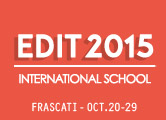Speaker
Ms
Ievgeniia Momot
(Goethe University Frankfurt, Germany)
Description
The Compressed Baryonic Matter (CBM) experiment will be one of the major scientific pillars of the future Facility for Antiproton and Ion Research (FAIR) in Darmstadt. The goal of the CBM research program is to explore the phase diagram of strongly interacting matter in the region of high net baryon densities and moderate temperatures. The compressed matter will be created by using high-energy nucleus-nucleus collisions.
The Silicon Tracking System (STS) is the central component of the CBM experiment. It serves for track and momentum measurement of all charged particles originating from beam-target interactions. The STS will consist of eight tracking stations employing more than 1200 double-sided silicon microstrip sensors on modular structures such that the readout electronics is kept outside of the physics aperture. A response of the silicon micro-strip sensors to the charged particles will be used for space-point determination and subsequent track reconstruction. The radiation load expected in the CBM experiment may significantly influence this sensor response. Studies of charge collection properties of prototype STS microstrip sensors and tests of their radiation tolerance will be overviewed.
Author
Ms
Ievgeniia Momot
(Goethe University Frankfurt, Germany)
Co-authors
Dr
Johann Heuser
(GSI, Darmstadt, Germany)
Dr
Maksym Teklishyn
(GSI, Darmstadt, Germany)
Dr
Minni Singla
(GSI, Darmstadt, Germany)

